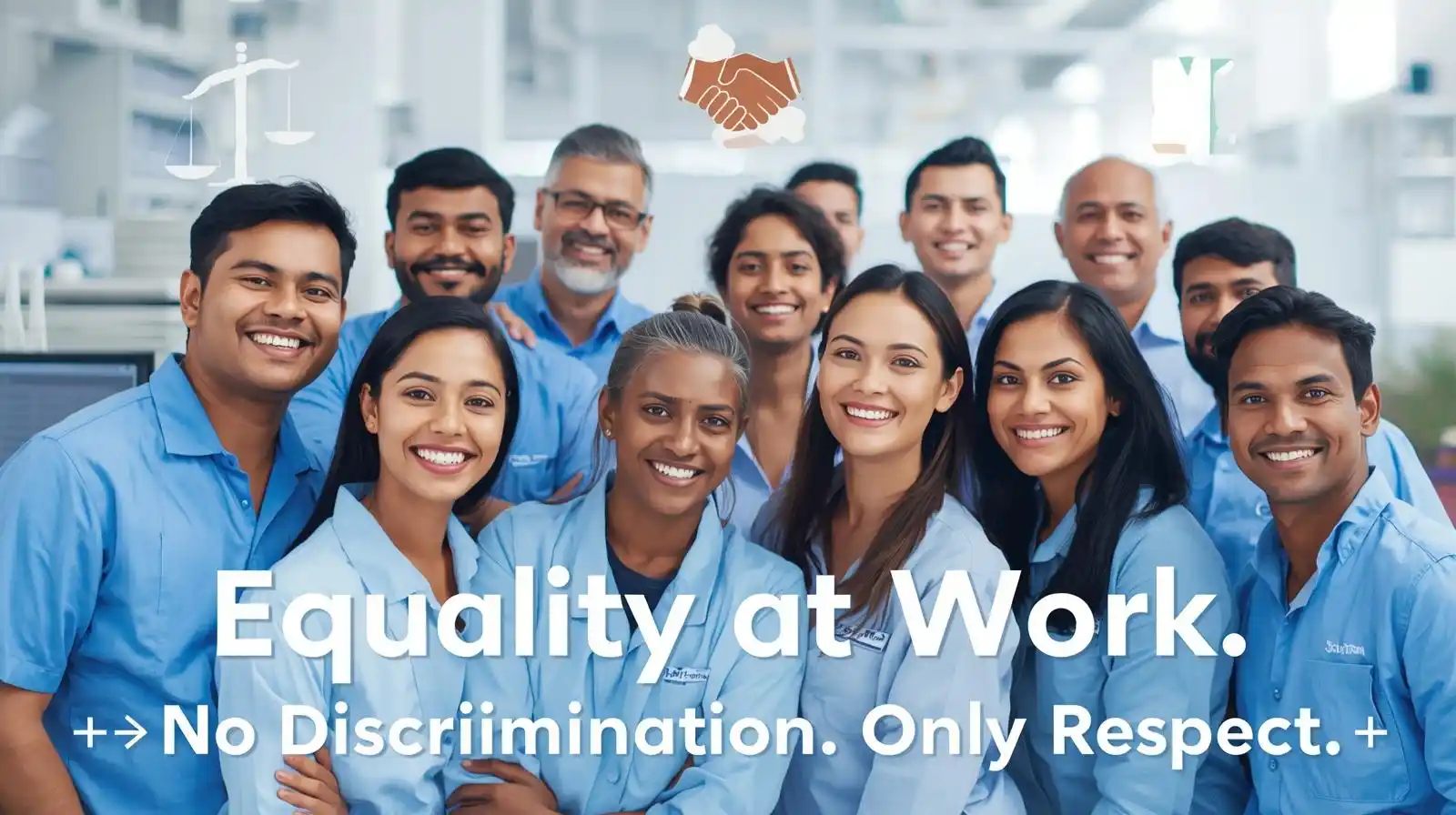In today’s evolving business world, promoting diversity and inclusion isn’t just a global HR trend — it’s a legal and ethical responsibility. In Sri Lanka, companies are strengthening their Non-Discrimination Policies to ensure fair treatment for every employee, regardless of their background, gender, or beliefs.
A workplace free from discrimination fosters trust, productivity, and innovation, while protecting employers from legal and reputational risks.
This article explores what a Non-Discrimination Policy means, its essential components, and how Sri Lankan companies can apply it effectively.
1. What Is a Non-Discrimination Policy?
A Non-Discrimination Policy is an official statement that ensures all employees — from recruitment to retirement — are treated equally without bias or prejudice.
It covers fair treatment across all aspects of employment, including:
- Hiring and promotion
- Pay and benefits
- Training and development
- Workplace conduct
- Termination and retirement
In Sri Lanka, this policy aligns with international standards set by the International Labour Organization (ILO) and local laws such as the Shop and Office Employees Act of 1954, Wages Board Ordinance of 1941, and the Human Rights Commission of Sri Lanka Act of 1996.
➡️ External Source: Human Rights Commission of Sri Lanka (HRCSL)
2. Protected Characteristics Under the Policy
A strong Non-Discrimination Policy prohibits unfair treatment based on:
- Age
- Race or ethnicity
- Caste or social origin
- Religion or belief
- Gender or gender identity
- Marital status
- Disability
- Nationality or origin
- Sexual orientation
- Political opinion or union affiliation
- Skin colour
- Pregnancy or parental status
For example, policy define “shall not engage in discrimination when hiring, determining compensation, granting access to training, promotions, terminations, or retirement.”
This aligns with global Equal Opportunity Employment standards.
3. Why It Matters for Sri Lankan Companies
Discrimination in the workplace — whether deliberate or unconscious — leads to:
- Loss of employee morale
- High turnover and absenteeism
- Legal disputes or labour tribunal cases
- Reputational damage to the employer brand
Such findings highlight the urgency for Sri Lankan employers to adopt clear, enforceable, and visible policies.
4. Key Components of an Effective Non-Discrimination Policy
A well-crafted policy should include:
1. Equal Pay for Equal Work
Companies must pay employees based on performance and skill, not gender or background.
Sri Lanka’s labour laws mandate equal pay for equal value of work, as reinforced by ILO Convention No. 100.
2. Equal Opportunity Access
All employees should have equal access to training, housing, and healthcare benefits.
3. Maternity and Parental Protection
Employers must not discriminate against pregnant employees or those with children.
Women should receive their entitled maternity leave (84 working days) and flexible work arrangements when possible.
4. Medical Privacy and Fair Recruitment
Employers are prohibited from demanding pregnancy tests or HIV tests as conditions of employment or continued work.
5. Awareness and Implementation
The company must create awareness sessions for employees and management to understand and respect the policy.
5. Implementation in Practice: Example from Apparel Industry
At Island Apparel Group (Pvt) Ltd, a mid-sized garment manufacturer in Koggala, the HR team launched its Non-Discrimination Policy alongside a diversity awareness campaign.
Managers were trained to identify unconscious bias during recruitment and appraisal.
Within six months:
- Employee satisfaction scores increased by 35%
- Grievances related to bias dropped by 50%
- The company earned compliance recognition from its European buyers under BSCI standards
This demonstrates how a fair and inclusive culture improves both morale and brand image.

“Equality isn’t just a legal requirement — it’s a reflection of respect, professionalism, and humanity in the workplace.”
A Non-Discrimination Policy is not just an HR formality — it’s the moral foundation of a sustainable, modern organization.
In Sri Lanka’s competitive industrial and service sectors, embracing equality ensures legal compliance, enhances productivity, and strengthens global partnerships.
After all, inclusion isn’t just about policies — it’s about people.
6. Roles and Responsibilities
- Top Management: Approves and supports the policy at strategic level.
- Human Resources Department: Implements, monitors, and reports on policy compliance.
- Supervisors & Managers: Ensure day-to-day fairness in operations and communication.
- Employees: Respect diversity and report discrimination through established channels.
Every employee, from factory floor to boardroom, shares responsibility for maintaining equality.
8. Enforcement and Reporting Procedures
Employees should have access to confidential reporting channels — such as HR hotlines or grievance committees.
Complaints must be:
- Treated confidentially
- Investigated fairly and promptly
- Resolved with documented corrective action
Companies that violate non-discrimination laws can face fines, legal action, or loss of export compliance certifications.

Mr. Wajira Fernando
Group Manager - Human Resources
Puwakaramba Group of Company









